5 steps to take right now to be safe and comfortable when a hurricane hits North Carolina
Hurricanes are like pig-pickin’s: If you live in North Carolina long enough, you’ll experience one.
This might be your year.
Meteorologists now say there could be as many as 18 named Atlantic storms this hurricane season, and there’s a better-than-average chance at least one will make landfall on the U.S. coast.
Don’t wait until NOAA’s forecast cone has a storm ripping through your ZIP code to make basic preparations.
1. Pack an emergency bag
A hurricane — or a tornado spawned by one — can force you to leave your home even if you’re far from the coast by causing heavy roof damage, flash flooding or an extended power outage. You may need to leave in a hurry and end up spending several nights on a relative’s couch, on a cot at a Red Cross shelter or in an inland motel.
Your hosts will have some basic necessities, but the more self-sufficient you are, the more comfortable you’ll likely be. Shelters in particular sometimes need a day or two to get fully stocked.
What to stuff in your emergency bag:
▪ A first-aid kit
▪ Phone charger, cables and charged-up power bank
▪ Cash or traveler’s checks (in widespread power outages, stores may open for cash-only sales)
▪ Medications and eyeglasses as needed, plus toiletries and bath towels
▪ Several days’ worth of clothes
▪ Baby wipes and small bags for trash
▪ Flashlight and batteries
▪ Electronic copies of important documents such as insurance policies and a house inventory
▪ Books, games and other activities to do while waiting for the storm to pass. Earplugs in case you don’t want to listen to other people’s games and activities
▪ Anything you’ll need for an infant or pet if your mobile household includes those
▪ Non-perishable snacks. Hurricane calories don’t count.
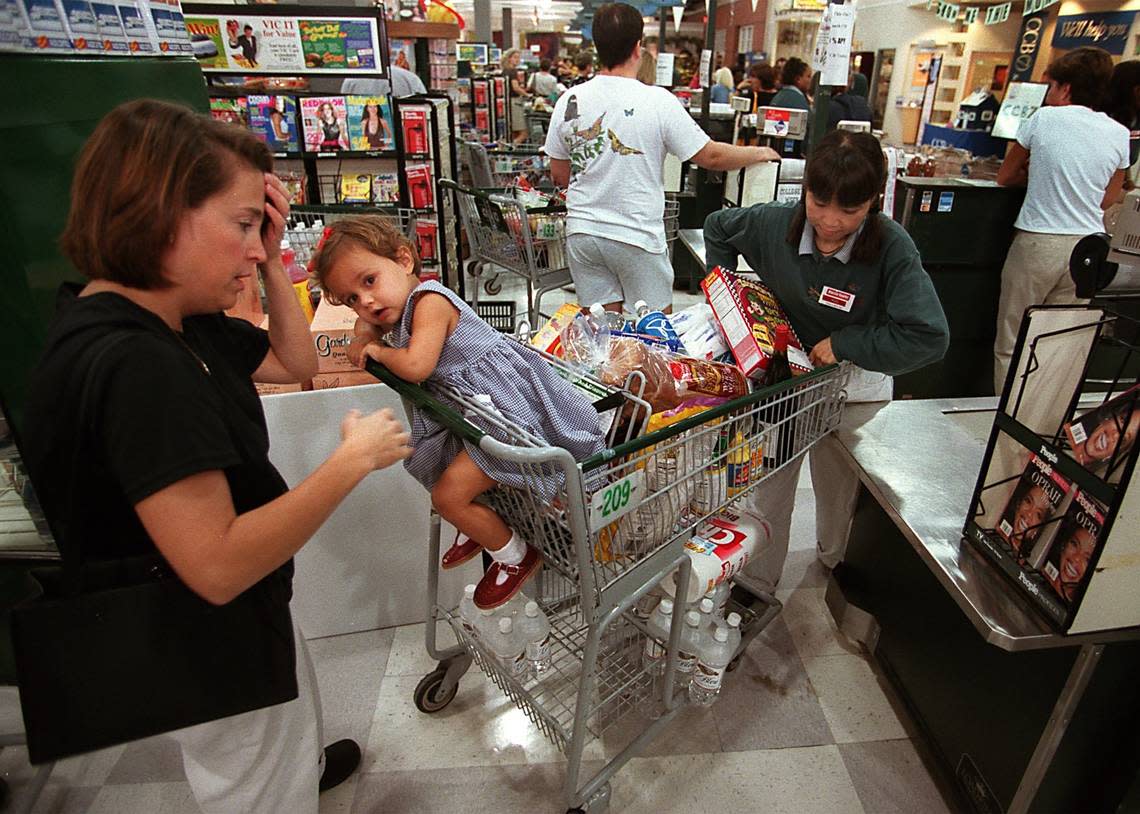
2. Stock the pantry
Hurricanes have been known to travel through North Carolina like wayward tourists, plowing through towns more than 200 miles from the coast. Ask anyone who lived through Hazel in 1954 or Fran in 1996.
Along their way, big storms take down power lines and damage infrastructure, slapping your lifestyle back to the 1800s in a matter of minutes. While camping in your own house can be charming for a night, it can test your patience and your relationships.
You might get lucky, but don’t count on being able to go to the local diner for a hot meal. They may not have power either, and they may close to deal with damage to their building or for employees to handle cleanup at home.
What to put on the shelf:
▪ Enough water and non-perishable food to last each member of your household three days without power. After three days, your power probably will be back on or you will have found a hotel or a sympathetic friend with a spare room. Meanwhile, even if flooding causes a boil-water advisory in your town, you’ll have enough to drink.
▪ Canned meats such as tuna, corned beef and prepared chili. Canned soups are handy, or get a boxed soup mix and add canned chicken. (Don’t forget a manual can opener.) If you have a grill or a camp stove (simple ones are available online for $20, and be sure to get fuel to operate them) you can heat these up, but never operate a grill or camp stove inside the house.
▪ Canned fruits and vegetables, dried or single-serving, shelf-stable fruit such as those made for school lunches.
▪ Peanut butter or other nut butters, jelly and crackers. Bread will fly off grocery-store shelves before a hurricane the way it does before a snow storm, so if you crave carbs when you’re stressed, buy that early.
▪ Protein bars, granola bars, candy and cookies. If you have a sweet tooth when the weather is fair, sideways rain and hurricane-force winds will not diminish it.
▪ Breakfast cereal and canned or boxed, shelf-stable milk.
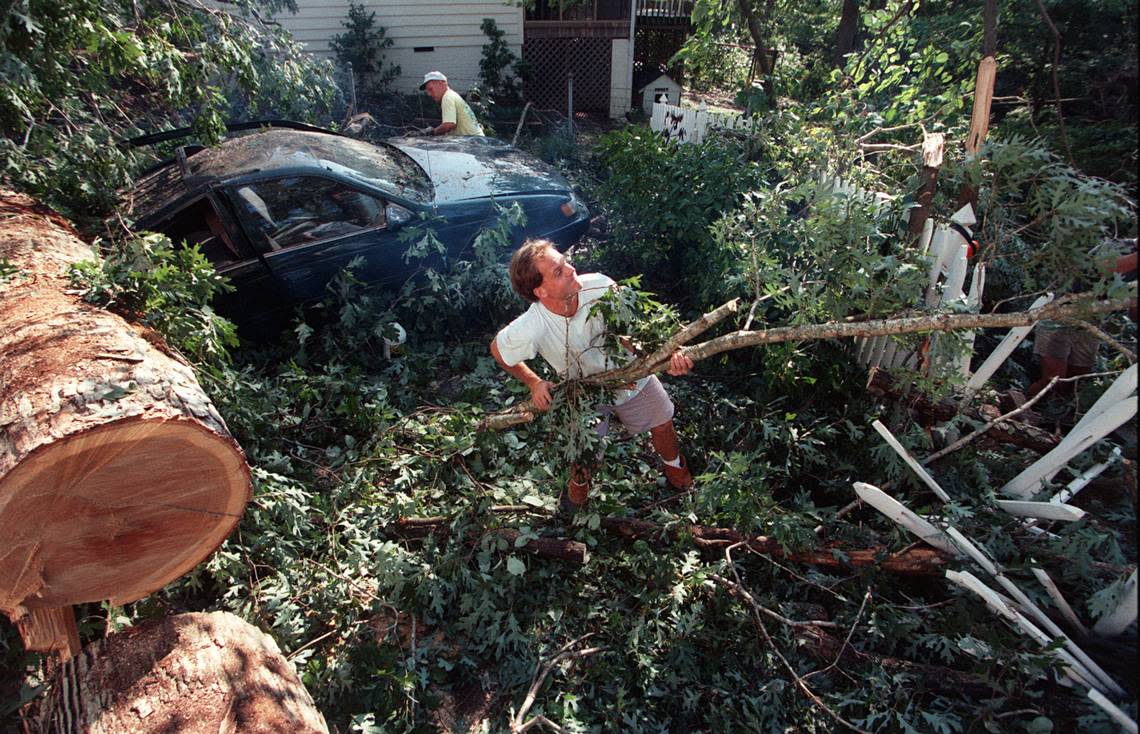
3. Get ready for lights out
An aging power grid is no match for strong rotating winds. If a powerful hurricane makes a direct hit on North Carolina, tens or hundreds of thousands of people will lose electricity. Figure on being among them. If you’re spared, give generously to one of the reputable non-profits that helps people rebuild after a storm.
How to survive off the grid:
▪ If you think you’ll need a generator, buy it now while the weather is good. They’re hard to find after a hurricane hits. If you use one, only operate it outside and away from the house to prevent carbon monoxide poisoning.
You’ll need gas to power the generator, and the time to buy that is long before the power goes out. Store it in approved gas cans.
▪ Top off the tank in your car ahead of the storm, so if you have to leave home after it passes, you’re good to travel even if local stations are without power to run their pumps. Do this early to avoid long lines.
▪ Have a flashlight and extra batteries for each household member. People will laugh if you wear an LED headlamp but when they see you can work with both hands, they’ll want their own.
▪ Consider buying a NOAA weather radio that can run off batteries, solar power or a hand crank. These can provide life-saving weather information such as tornado warnings if you don’t have internet or cell service.
▪ Hot, humid weather often follows hurricanes. If you’re heat-sensitive, even a small battery-operated fan can make it easier to sleep at night. They use a lot of battery power, so run them on the lowest speed you can tolerate.
▪ A day or so before a storm is expected to hit, get a bag or two of ice to store in a cooler. If you have medicine that must be refrigerated, keep it there. Food that’s in the refrigerator should be good for four hours. After that, move it to the cooler, cook and eat it, or toss it.
▪ If you plan to cook on an outdoor grill, keep a full tank of propane. After Hurricane Hugo hit Charlotte in 1989, leaving some people without power for two weeks, anyone who could make a meal on a gas grill and share with their neighbors could get keys to the city. Block parties and lasting friendships were built around the communal contents of emptied freezers.
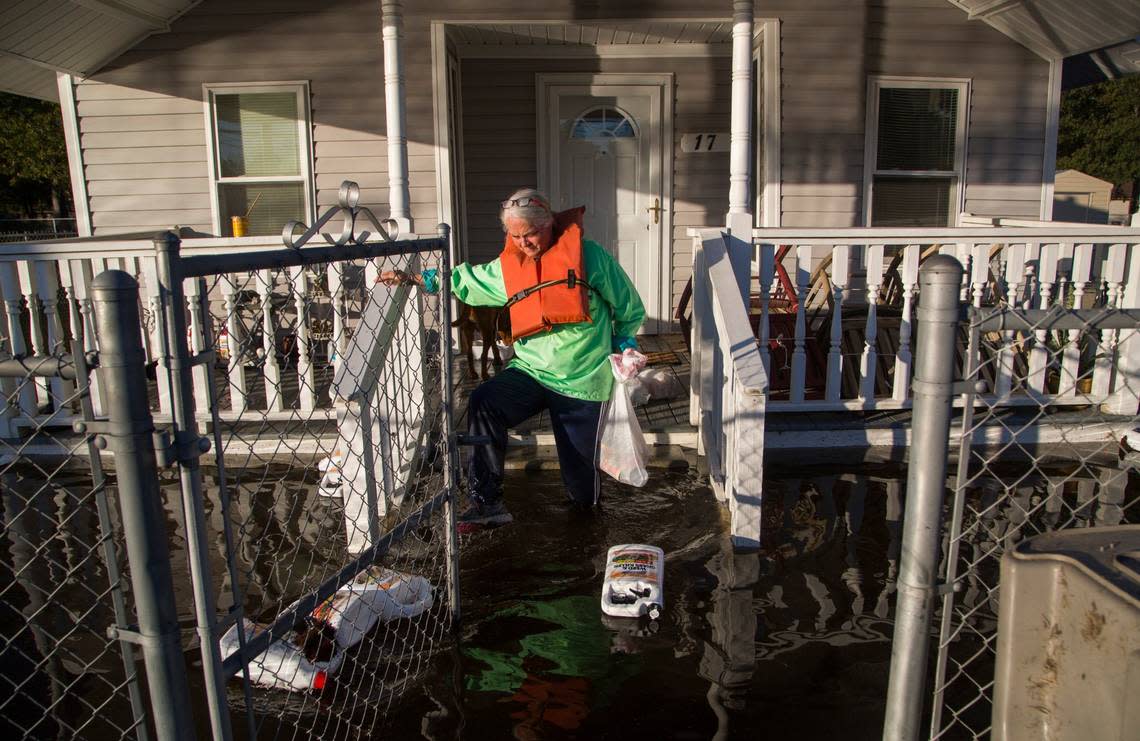
4. Prevent dangerous UFOs
In high winds, even small objects can become projectiles and large ones can be deadly. And in North Carolina, the worst effect of many hurricanes has been the flooding caused by seemingly endless days of heavy rain.
How to secure your property:
▪ If you have lawn or patio furniture, have a plan for moving it indoors or securing it in place. You can stack pieces, strap, zip-tie or bungee-cord them together, stake them to the ground or push them against a wall. Yard decor that could fly loose should be brought inside.
▪ Through the summer, trim dead tree branches that could break off in a storm
▪ Take advantage of dry-weather days to check window caulking and weather stripping around doors and replace any that needs it.
▪ Waterfalls are beautiful, but not when they’re happening over the gutters of your house. Keep gutters and downspouts clear to keep water away from your home’s foundation.
▪ If you have storm or screen doors, make sure latches and locks work to prevent the door being pulled off the hinges in high winds.
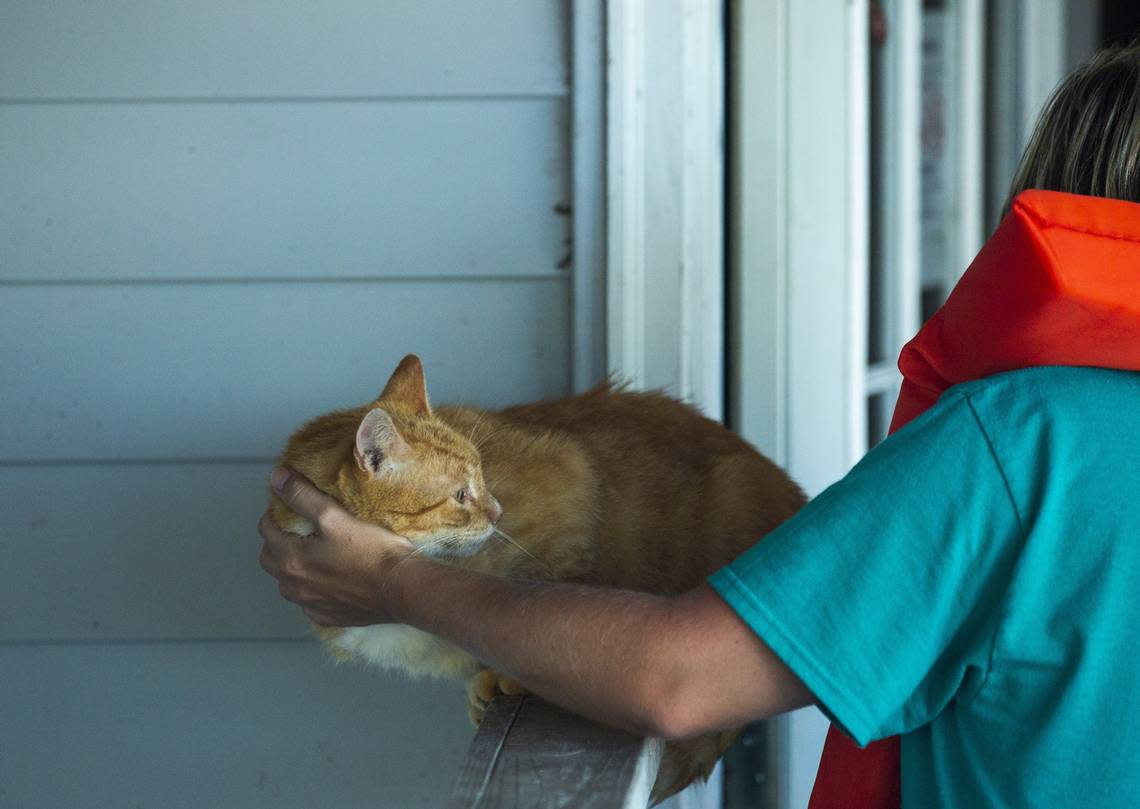
5. Storm-proof your pets
Animals often can sense big atmospheric changes, but they can’t do much to prepare for what’s coming. That’s their owner’s job.
If you have pets, pack for them as fastidiously as you would for yourself. If you have to leave your home, the Federal Emergency Management Agency (FEMA) advises you to take the pets with you, to keep them safe and to prevent rescue workers from having to risk their lives trying to save them later.
How to prepare for an evacuation with pets:
▪ Have a plan for where you can go that will accept your animals. A few emergency shelters set up temporary kennels. Friends or family outside the hurricane zone may be willing to house you and/or your furbabies. Some motels accept pets, but don’t try sneaking Shadow in without permission; a neighbor will rat you out and you can both be evicted.
Some resources for finding places that welcome animals: bringfido.com (also available by phone at 877-411-FIDO; hepper.com; pet-friendly-hotels.net; petswelcome.com; tripswithpets.com
▪ Well in advance of a storm, pack an emergency bag for your pet that holds three to seven days’ worth of food in a waterproof container, and a commensurate amount of water. Add a dish and bowl, and a favorite toy or blanket.
▪ Pack any medications your pet needs, along with grooming items.
▪ Include in the bag a leash, collar, updated ID and rabies tag, along with copies of your pet’s registration and other important documents. Electronic copies are good. Anyone who kennels your pets will want assurances they’ve had their shots.
▪ A photo of yourself with Coco can help prove ownership if you get separated or one of you gets lost.
▪ You’ll need a pet carrier, and if Leo has never been in one, you have the summer to practice.
▪ A litter box and poop bags
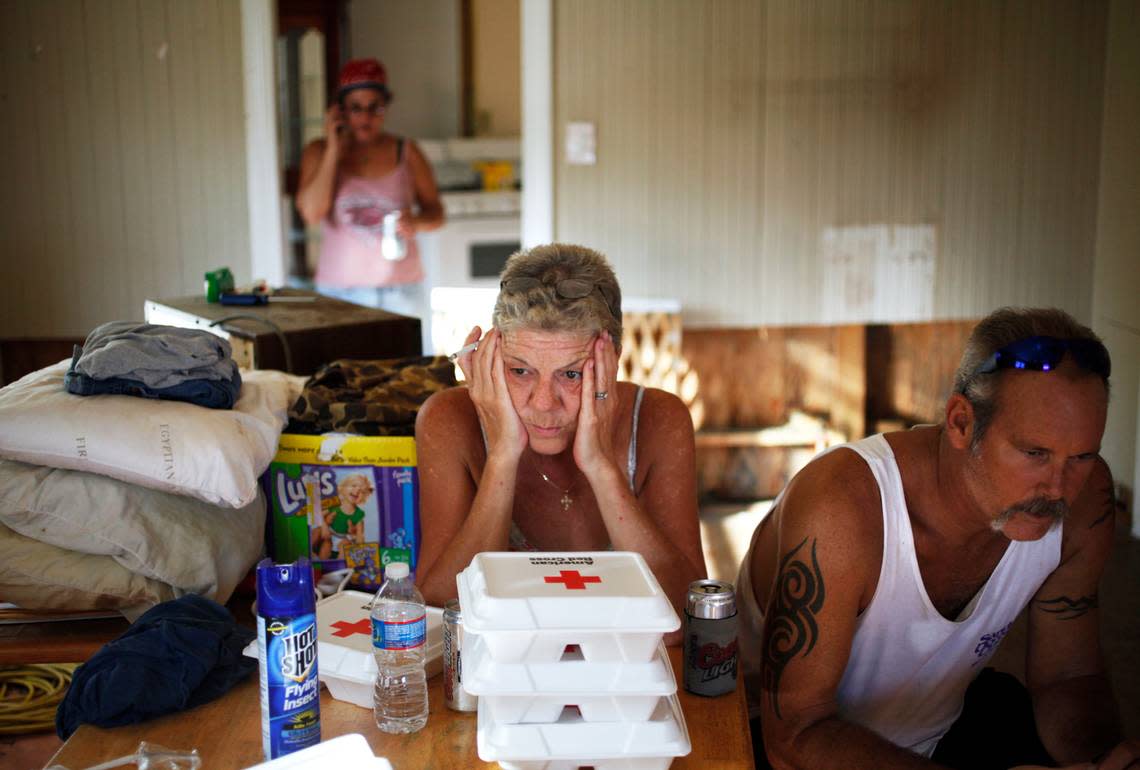
For more information on hurricane preparedness, visit:
▪ The Federal Emergency Management Agency
▪ Insurance Institute for Business & Home Safety
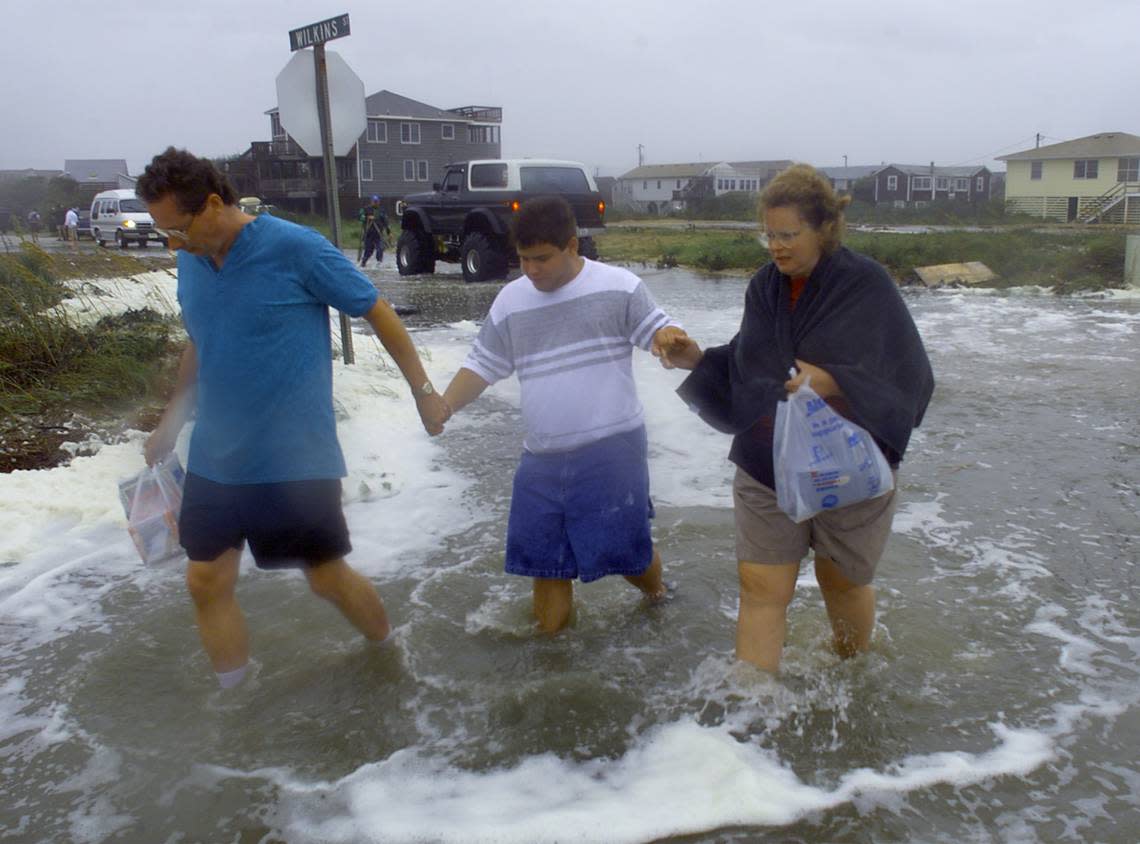
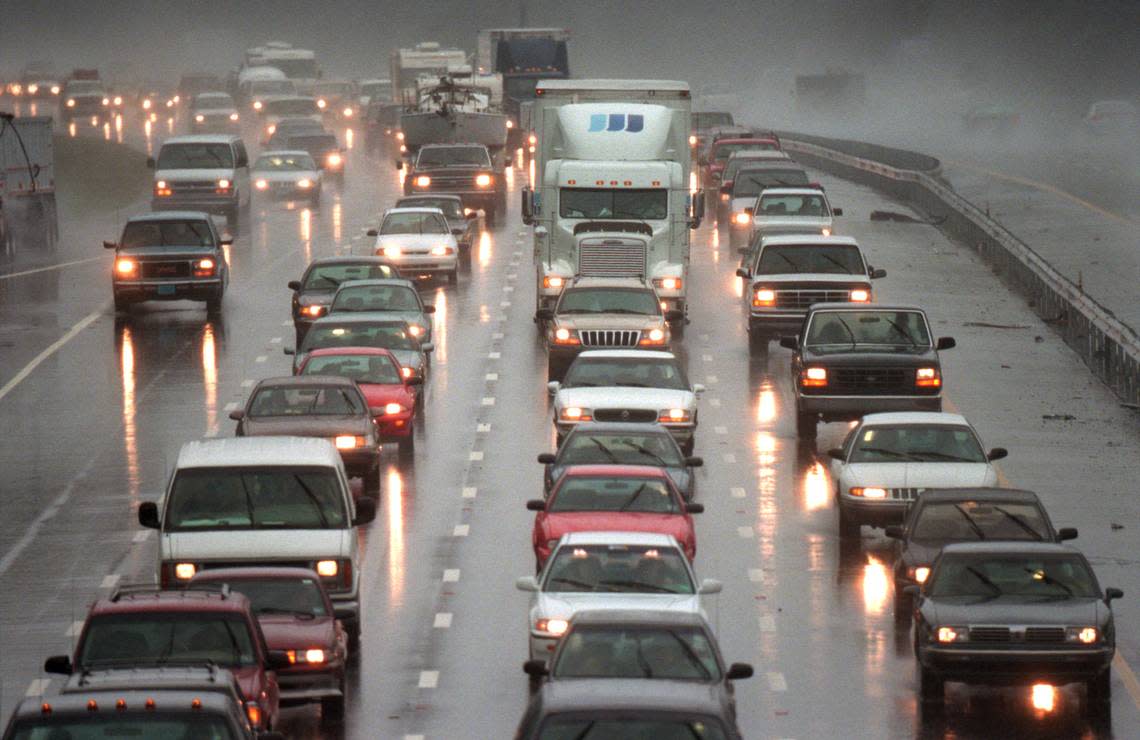
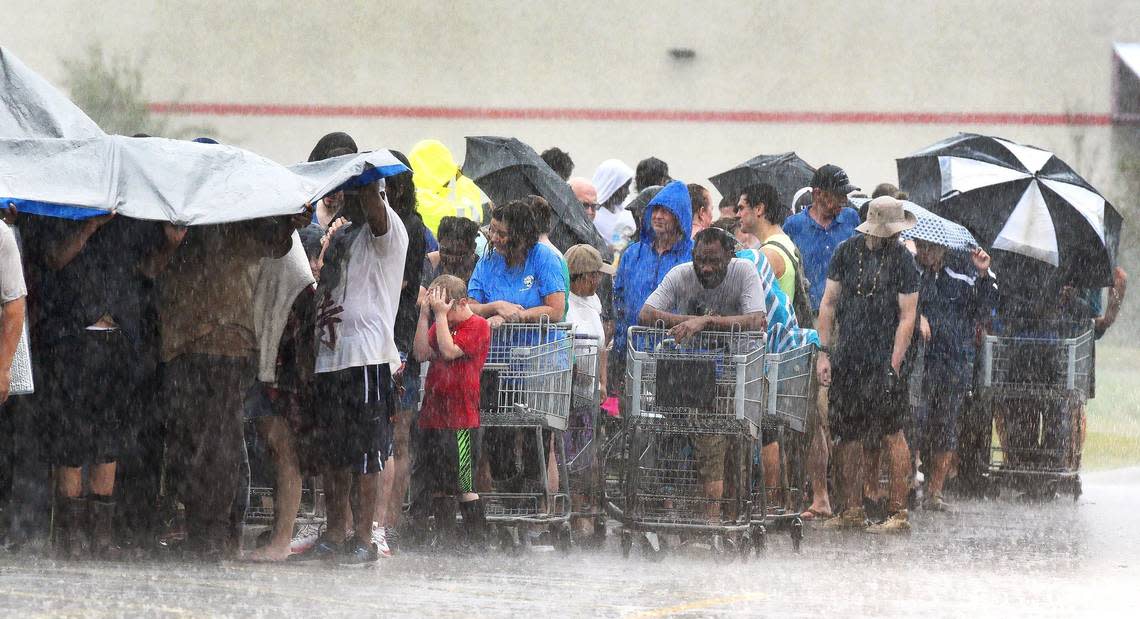
Don’t drive through floodwaters + other tips for staying safe during heavy rain storms
Do you need to evacuate when a hurricane is headed for NC? Here’s what to know.
